Fabrizio Ulivieri's Blog
September 30, 2025
Hylics and not Hylics
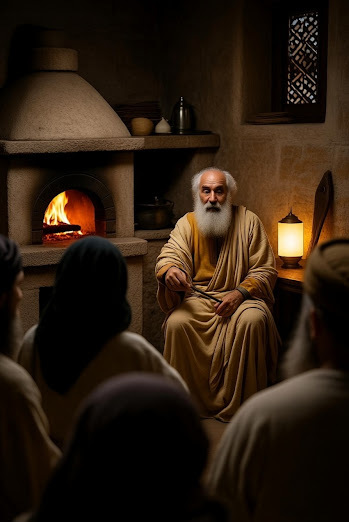
If there is an aspect of Mahāyāna Buddhist philosophy worthy of deep consideration, it is the notion of samvṛti. Only questioning minds or sensitive hearts understand that the reality we inhabit is one of total and complete covering. Candrakīrti, in his Prasannapadā, defines this as samantādvaraṇam - a shroud cast over truth. Questioning minds or sensitive hearts feel that the phenomena of the world are not what they seem to be. Samvṛti acts as a screen, and by its effect, what is merely an elaboration appears as reality. Samvṛti is the misery in which Hylics - i.e., the masses - live.
If you let yourself become part of the mass (Hylics), you miserably cohere with the totality of individuals, because you’ll live in dependence on one another, without ever questioning reality. You’ll live in a covered reality, and you’ll live for it, following what others think - you’ll live in a co-dependent existence, the way the masses live.
Samvṛti is characterised by signs and symbols - language itself - which enable the business of the world (loka-vyavahāra). The man who doesn’t question reality will live in this appearance, elaborated by the business of the world (loka-vyavahāra), and will accept its beliefs and rules, becoming a co-originated individual.
Ultimately, Hylics, with their co-originated nature, are bound to the roots of suffering. In order to avoid suffering, they cling to a common nature that deprives them of any responsibility and becomes an anodyne way of life.They become entities that arise and perish only in dependence on one another, devoid of “intrinsic Being”, for they are empty of any inherent nature. They constitute a mere fact - an appearance in the world - acting as a reflection of existence.
Questioning minds or sensitive hearts act in such a way as to establish a svabhāva - a proper, independent individuality in contrast to the mass. Svabhāva, as Mahāyāna Buddhists say, is itself a source of suffering.
Questioning minds or sensitive hearts (especially saints) perceive the things of the world as they are: not as the saeculum (the societal order) sees them. A Supernatural reality operates within them, and svabhāva is this intrinsic operating nature: that is, the Supernatural. It is in the world and reveals itself through the world. And those who discern this operating intrinsic nature stand against the saeculum, and are not believed, but are often rejected, persecuted, and cast aside by it.
It is told that some distinguished visitors, expecting to find Heraclitus in lofty contemplation or surrounded by symbols of wisdom, instead came upon him sitting by an ordinary household hearth, warming himself. At first, they were taken aback by the ordinariness of the scene - their philosopher, whose teachings penetrated the mysteries of logos and cosmic order, appeared engaged in the most mundane, bodily necessity...but perceiving that they could not perceive what he perceived.And he said:
εἶναι γάρ καὶ ἐνταῦθα θεούς
“There are gods even here.”
Published on September 30, 2025 23:10
Storia di un poeta (il problema della bellezza)
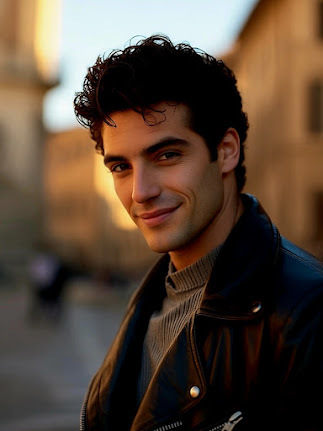
Giorgio ebbe per tutta la sua vita un problema con la bellezza.
La bellezza, non è mai completa per quanto uno sia bello - e Giorgio bello lo era e si sentiva bello.
La bellezza tende sempre alla vanità e al narcisismo; e diviene un problema di coscienza perché sempre le manca qualcosa per essere quell’ideale che essa stessa si propone.
E questo porterà sofferenza, perché il segreto dell’attrazione risiede in realtà nel potere dell’imperfetto.
Soprattutto era nel sesso che sperimentava questo. Nel sesso dove il brutto, l’animalità, la volgarità, la sporcizia sono le basi della foga e del trasporto erotico. Della mascolinità e della perversione maschile e femminile.
E questo talora lo sconcertava e gli dava problemi di tenuta.
Tanto che l’ossessione del corpo - delle sue imperfezioni - culminò decadi più tardi in un suo poema che scrisse per gli amori eterni della sua vita quando aveva accettato ormai l’imperfezione e lo sconcio della vita:
Amo il tuo corpo, amo la tua pelle
Le tue imperfezioni per me divengono
Le perfette cose che mi appartengono
Sul finire della sua vita certi urli interiori cominciarono a squarciare il suo intimo e da quegli urli sgorgava poesia - in modo naturale e a getto.
Ma in quegli anni giovanili, e della maturità poi, la poesia taceva. Gli urli erano soffocati da continue proiezioni di vita che lo spingevano in direzioni che gli parevano vere ma erano di-strazioni dalla linea che il soprannaturale aveva per lui tracciato e di cui non era conscio allora.
Allora avvertiva il suo-esser-bello come un dono da regalare al mondo, alle persone soprattutto che non avevano avuto questo dono. E forse questa fu la spinta che diede l’impulso al suo innamorarsi per Marta.
Il senso della sua bellezza era donarsi agli altri, quasi costituisse una forma di grazia da lui preveniente che riceveva chi veniva in contatto con lui.
Certo Dio, come già abbiamo detto, scrive sulle righe storte, e non è escluso che in questa sua presunzione di portatore di bellezza non vi fosse una missione che Dio gli avesse assegnato su questa terra.
Ma il suo porsi come portatore di una grazia alla bruttura di questo mondo faceva sì che Giorgio sempre si desse al mondo e annullasse se stesso per piacere al mondo, come da piccolo si era dato alla madre per compiacere l‘amore della madre.
La bellezza sua finiva per appartenere agli altri e non più a se stesso.
Si rese conto, più tardi, che la sua bellezza diveniva un problema di prossimità, era sempre prossima-a, vicina a chi la recepiva e come la recepiva. Non gli apparteneva; era invece il riflesso che si generava dalla prossimità che conferiva a lui il senso e il limite della propria bellezza.
E i riflessi che riceveva, gli dicevano che era una bellezza immatura, come quelle dell‘ asino, una bellezza di gioventù che inclinava al narcisismo, usata in malo modo e sciupata talora e che, anche se fingeva di ignorarlo, per un uomo, soprattutto, la bellezza non è tutto.
Un uomo deve essere anche maschio.
Ma forse in lui vi era anche una omosessualità latente, che poi molto latente non era. Una omosessualità intermittente che si manifestava in certi periodi e poi scompariva e ritornava maschio.
E ancora tutto, lui, lo riconduceva a quel maledetto destino di essere stato un bambino mascherato da bambina.
Quanto male può fare una madre!
Anche se involontariamente.
Published on September 30, 2025 10:14
September 28, 2025
In trollyebus
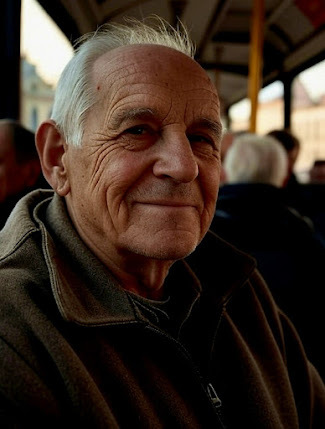
Tu siedi davanti con un sorriso
Guardi lontano e nei ricordi vai
Dal mio genere in tua specie diviso
Di me sfiorato - che ricorderai?
Published on September 28, 2025 05:03
September 27, 2025
I tre giorni di fuoco

Se anche verranno tre giorni di fuoco
l'amore terrà nel dolore uniti
e oltre la morte vivi in suo gioco
salir i cieli per fiamme infiniti
Published on September 27, 2025 14:32
September 26, 2025
Does the wheel of fortune then will continue past death?
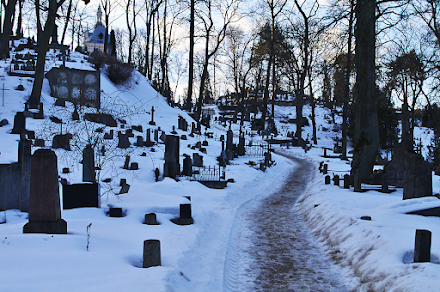
For a long time, I believed death was ultimately a moment of freedom: I die, and I no longer worry about what I’ll do tomorrow. I free myself from everything, including time.
But reflecting on this theme - explored by Aristotle and others (Pindar, Dante Alighieri, and more) - I am no longer so certain.Is there a possibility of a tie, a nexus, a liaison between the living and the dead? Can the dead be affected by events in the world of the living, and vice versa?
Even Aristotle does not dismiss this idea:ἔοικε γὰρ ἐκ τούτων εἰ καὶ διικνεῖται πρὸς αὐτοὺς ὁτιοῦν, εἴτ᾽ ἀγαθὸν εἴτε τοὐναντίον, ἀφαυρόν τι καὶ μικρὸν ἢ ἁπλῶς ἢ ἐκείνοις εἶναι, εἰ δὲ μή, τοσοῦτόν γε καὶ τοιοῦτον ὥστε μὴ ποιεῖν εὐδαίμονας τοὺς μὴ ὄντας μηδὲ τοὺς ὄντας ἀφαιρεῖσθαι τὸ μακάριον.
(Nic. Eth. 1101b)
"For it seems, from these things, that even if anything whatsoever reaches them - whether good or the opposite - it is something feeble and small, either in itself or for them; and if not, then it is of such quantity and quality as neither to make the unhappy happy, nor to take away blessedness from those who are happy."
Thus, something endures in the relationship between the living and the dead after an individual’s demise.
Perhaps what sustains this bond, the quality of this connection, is the legacy the deceased leaves as a reminder of themselves to the living. The true quality of life is often revealed only at the end of an individual’s existence.
Death frequently unveils the authentic face of a person’s life—unexpected inheritances, love children, hidden double lives. Thus, Solon’s phrase, cited by Aristotle, resonates:οὖν οὐδ᾽ ἄλλον οὐδένα ἀνθρώπων εὐδαιμονιστέον ἕως ἂν ζῇ, κατὰ Σόλωνα δὲ χρεὼν τέλος ὁρᾶν (Nic. Eth. 1100a)
"Should no other human being be called happy while he is still alive, because according to Solon, must we look to the end".Many revelations can surface after a person’s death, altering the image we held of them.
Let us now consider Aristotle’s reflections on the influence of the living upon the dead as evidence of an implicit connection between life and death, following this proposition: There is no death without life, and no life without death. As with green and red, which share an implicit connection through "colour," So too do life and death intertwine.
At this point, why should we exclude a priori the possibility that the fate of the living might influence the state of the dead (and vice versa), given this profound connection between life and death?Most philosophers who have addressed the problem of death have considered it almost exclusively as "the death of the other." None has explored it as a continuity and relation between life and death, or death and life. Yet, as stated, there is no death without life, and no life without death.
Only the language of poetry (Pindar, Dante Alighieri, Anton Chekhov) and Aristotle have sought to perceive this relationship between the living and the dead.Dante Alighieri offers compelling examples. Notably, in Inferno (X, 77-78), Farinata degli Uberti is so concerned with Florence’s political situation that its outcome torments him more than his suffering in Hell:
S’elli han quell’arte», disse, «male appresa,
ciò mi tormenta più che questo letto.If [...] they have that art," he said, "not learned aright,
That more tormenteth me, than doth this bed.
Likewise, Pindar in Olympian 14 presents this idea of a liaison between the living and the dead, a concept echoed by Aristotle and Dante.
Go now, Echo, to the black wallsOf Persephona's houseAnd bring the fine news to his father;See Kleodamos and tell himHow his son In the famous valleys of PythoHas crowned his young hairWith the wings of a glorious triumph
Anton Chekov, in Three Sisters
In two or three hundred years’ time, or a thousand, say – it doesn’t matter how long – a new, happy life will dawn. Of course, we shan’t be a part of that life, but we’re living and working towards it now, suffering, indeed, to create it, and that’s the whole point of our existence, that’s our happiness, if you like.
Why, then, should Aristotle’s statement about the nexus between the living and the dead not be true? Why should the poets’ emphasis, conveyed through their essential, sentimental and seizing language, more capable than philosophy of capturing such truth, be dismissed?
Of course, this aligns with modern philosophy’s tendency to exclude the supernatural from every aspect of human life.
Published on September 26, 2025 08:42
September 24, 2025
Le stelle
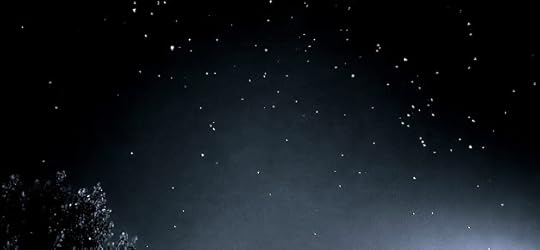
E sono uscito la notte a guardar
le stelle al freddo cielo - gli occhi
andati su per il divin spettacolo.
Io avevo dimenticato le luci
che vagano all' infinito nero
senza pace che calmo però appare
allo sguardo come in un respiro.
Ho sentito la grazia di quel vivereestinto che rinasce in questo latodi mio mondo - ove esister è obliato.
Published on September 24, 2025 19:06
September 22, 2025
L'angelo custode

Mio piccolo amore tu sei un ciuchino
Vai, fai, ascolti e non parli - ma sai
Che angelo custodisce suo destino
Tu che in terra ti dai saldo in te assai?
Published on September 22, 2025 22:51
September 20, 2025
Le cose più perfette

Alla triade di nomi che è la mia vita
Amo il tuo corpo, amo la tua pelle
Le tue imperfezioni per me divengono
Le perfette cose che mi appartengono
Published on September 20, 2025 23:10
September 19, 2025
Gioie segrete e sorrisi privati
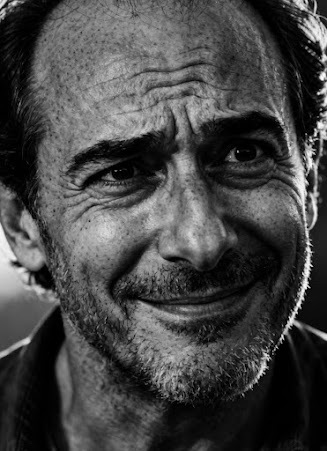
Di quello che io una volta ero?
Il diavolo quello sì sempre credo
Nell'intestino saldo sta, si tiene.
E ora come allora mi uccideOgni giorno - così anno dopo anno.
E pensavo fosse Dio a giocare
Con me e invece un altro spirito
Contrario mi guida ora irrequieto
E di me si trastulla - lui crudele.Nel mio volto tacciono desideriGioie segrete e sorrisi privati,Piccole vaghe astuzie infantiliOve Dio e il demonio si scontranoE il mondo così e l'uomo curano.
Published on September 19, 2025 22:32
September 16, 2025
Dio gioca con l'uomo perché?
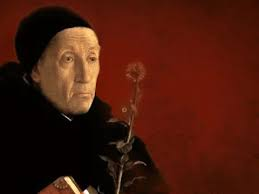
Qualche volta io penso, Dio, tu abbia
con me giocato, o forse scherzato.
La mia vita strana, bizzarra, dubbia
di speranze avevi accreditato.
Tante erano - ma l'ho tradite tutte.E son andato lontano alla fineLontano da dove le ho distruttein un posto alla pace incline
di cose ora fin troppo quotidiane io che solo amavo la gloria mundil'idiozia di questo mondo inaneseguivo però in quei suoi rimandi
di una macchina assai complessadi un corpo, quello mio umanoperfetta che or va avanti dimessavedo la meraviglia del Suo piano.
Ma una cosa bella è che ancor sognoL'altra vita dopo questa. Mi illudo?Io non credo - mi rafforzo nel segnomi tengo aperto e non mi rinchiudo.
Published on September 16, 2025 22:44



